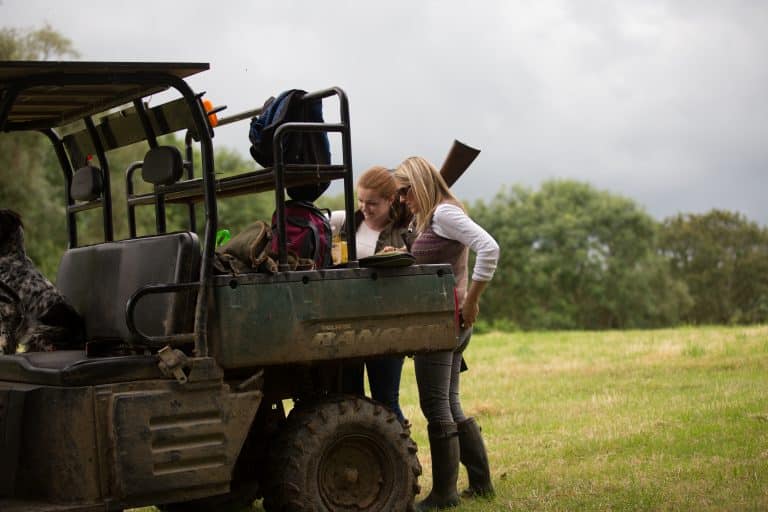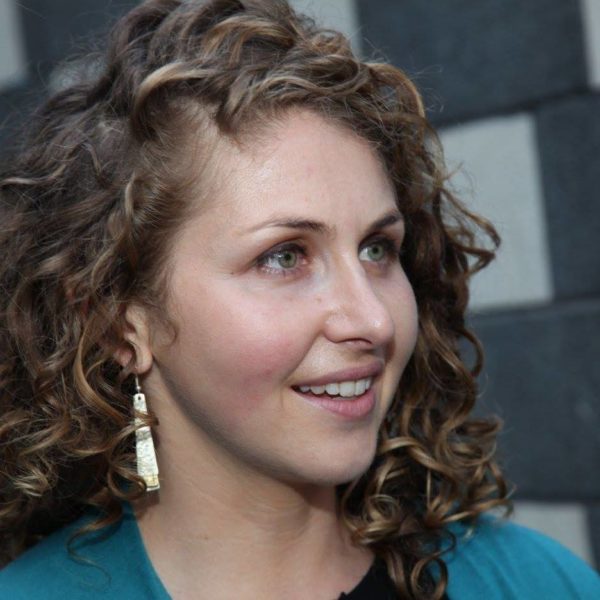
Image by Kit Williams/CalderbridgeFocus, © All Rights Reserved.
The Conversation About Guns We’re Not Having
I write this not only because I like to say unpopular things, but more because I gleaned tidbits of insight during my summer in rural Wisconsin, and right now one of them feels worth sharing.
First, some background on me: I’ve never fired nor even held a gun. I’ve been offered the opportunity twice. The first time was in 2002, during my Young Judaea days on an Israeli air force base, where part of the basic training requirement involved target practice. My staunchly anti-war/anti-gun 18-year-old self sat out and refused to participate in the full group activity.
The second was this past summer in rural Wisconsin, during my time working with Resetting the Table’s Listening Campaign, in which we conducted over 300 interviews and brought together 175 people in dialogue across a staggering range of backgrounds and viewpoints in rural Wisconsin and Iowa. Over the course of the summer, I grew close to a local family who warmly opened up their lives and home to me. They offered me the opportunity to shoot clay pigeons with them in their backyard. It was their 14-year-old daughter’s favorite pastime and she was supposedly a very good shot. Why shouldn’t I give it a try? In the end, I never joined them in the activity. I think I still wasn’t ready. Maybe I never will be.
That said, during my time in rural Wisconsin, I began to grow a deeper understanding (among many other issues that had felt completely foreign to me) of guns and the major role guns play in certain segments of American culture. I began to see how valuable guns are to people, both for their pure recreational value — for them, going to the shooting range is no different from going to the golf course — and for their symbolic importance. To the family I became close with, guns represented their independence and autonomy. Guns that had been passed down as heirlooms represented their connection to their ancestors. Being “gun people,” as the mother proudly proclaimed about herself and her family, is an essential part of their identity. I may never fully grasp the importance of gun ownership to the many Americans who cherish it so deeply, in the way none of us can fully grasp the full sanctity of sacred objects to other cultures not our own.
While I may not be able to fully grasp it, I have begun to force myself to reckon with it and even to cultivate respect for it, just as I would respect any other important cultural symbol to another culture. I know that what I am writing is likely alienating to many of my friends and others whose values I share and whom I deeply respect. But I feel I must.
I must say it now for obvious reasons. I’m sitting in the horror of this historical moment that we live in, where the occurrence of mass shootings has become part of regular life in America. Like everyone, I’m oscillating between numbness and devastation when I think about what happened Sunday night. No more carnage please. We don’t want to fear attending public events and celebrations for fear of being gunned down. How do we fix this?
I feel strongly that shaming people who care deeply about being able to own guns will not help us end this problem. Not only is it a waste of our energy, I believe it is actually harmful to our aims. Telling people that gun ownership is morally bankrupt or crazy certainly will not lead those people to relinquish their guns; if anything it will lead them to buy more. The fact that stocks in all of the major arms manufacturing companies went up yesterday is all the evidence we need for what happens when people think their right to buy guns is at risk of being taken away.
The polemics of “guns are evil” is not a strategy that has been working. There is a very slippery slope between hearing someone say “guns are evil” and hearing someone say “gun owners are evil.” If I hear someone tell me that something I cherish is evil, I immediately write that person off and disregard every next thing they have to say. What can they possibly know about me and my life? How is anything they say relevant or worthwhile? I certainly would not be interested in partnering with them to work on legislation or any sort of joint political project, even if what we wanted was the same thing. And I am certain that the family I’m thinking of in rural Wisconsin, big country music fans, do not want their 14-year-old daughter to be at risk of being shot at a country music festival.
Gun-owners I spoke with this summer support the NRA in part because they feel the other side doesn’t even see their humanity. However, most people I spoke to in Wisconsin did favor forms of gun regulation, which is different from the NRA’s all-or-nothing approach. So how do we show them that we do see their humanity? Well, as a first step, by actually attempting to.
The family I became close to this summer owned more than 25 guns. When I asked the father why he said “more than 25” rather than an actual number, he said it was because he honestly didn’t know how many guns they owned. And as I spent my summer interviewing many others like them, I was dumbfounded to realize the extent of the many mini arsenals that exist in homes across this country.
I may never be able to fully wrap my head around it. But I know I must be humble enough to accept that there are meanings to symbols and objects in other cultures that I cannot grasp, and that I must therefore still show my respect to people. Especially if I want to gain their respect. And even more so if I want us to be able to work together. Anyone in the fight for reasonable gun regulation will need gun owners on board in order to win.
I won’t be able to get anyone on board with me by shaming them for something they love, especially when I’m the first to admit I’ve never even held a gun myself. How can I, with any authority or integrity, ridicule someone for something when I hardly know the first thing about it?
